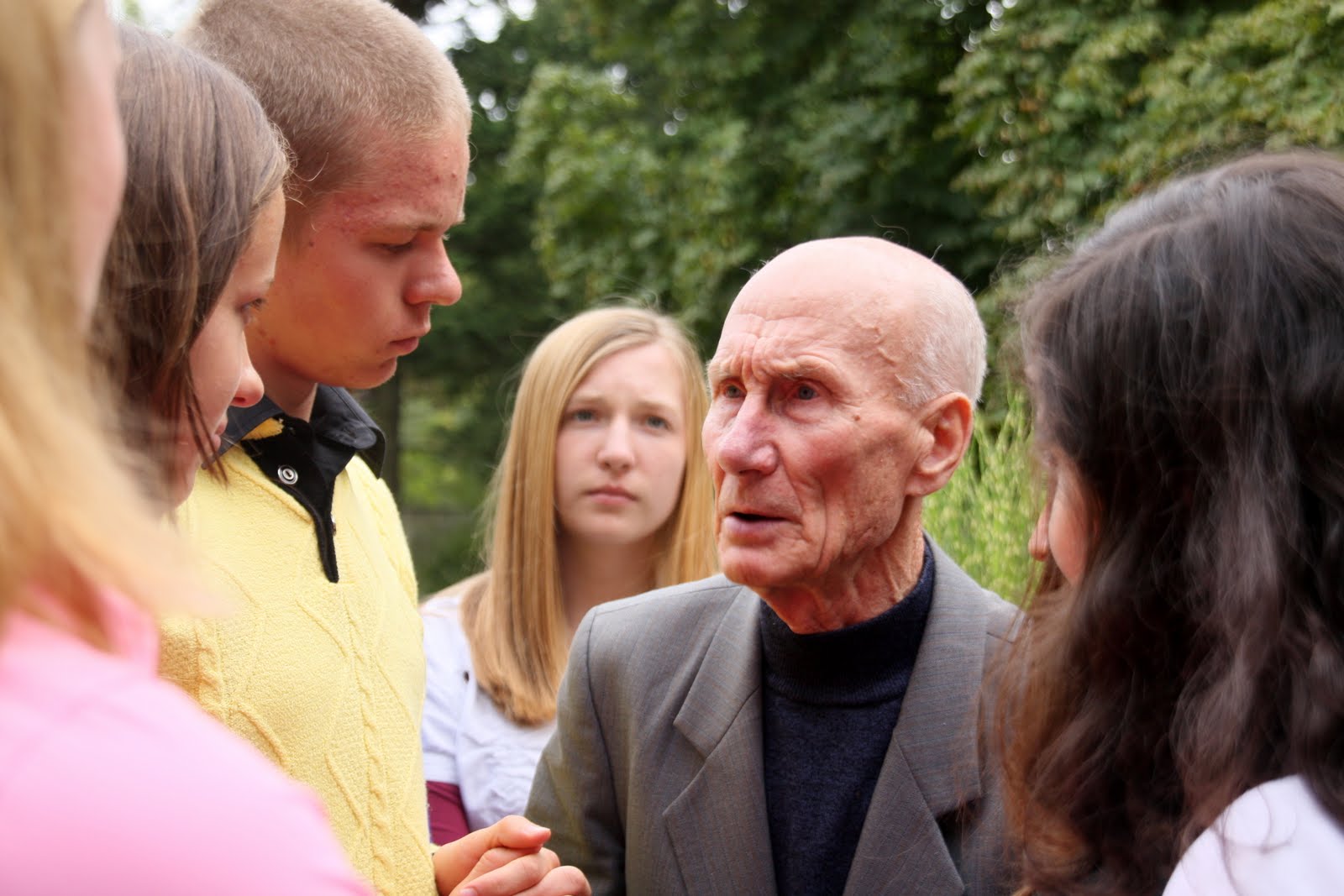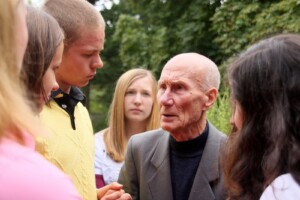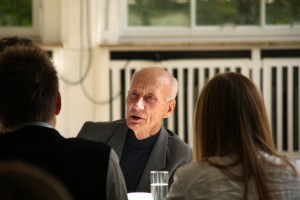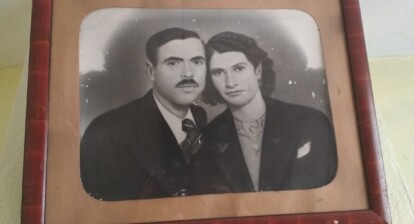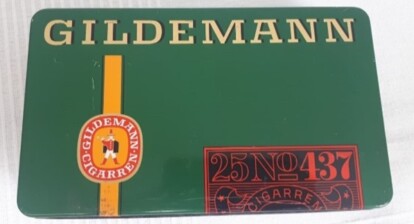Three times imprisoned, first in a German camp, second in a Soviet Gulag, and third and last in the prohibition to talk about the former, Lev Alexandrovic Netto experienced the atrocities of war on multiple levels over the course of his lifetime. In 2011 he shared his personal story for the first time in detail with young Europeans.
The Testimony of Lev Alexandrovic Netto: A Glimpse into WWII History
The EUSTORY Seminar “Neglected victims of WWII: Prisoners of War” enabled a group of young Europeans to interview a very interesting man, Mr Lev Alexandrovic Netto. Born in Moscow in 1925, he grew up in a family supporting the Communist Party. In 1943 young Mr Netto was first sent to the Belarus front. In 1944 he was captured by the Nazis in Estonia, and afterwards kept in several camps in Germany and Latvia up until 1945 when the Americans released him. When he returned to Russia the Red Army perceived and labeled him as a betrayer, and as such tortured him. After he made a false confession of being a spy for the United States of America (USA), he was sent to a Soviet Gulag, where he remained captured for 8 years.
For several days our group prepared for the unrepeatable experience of hearing the testimony of a time witness. The preparation consisted of participating in workshops, meetings and lectures since we wanted to do our best in order to get as many information from our distinguished guest and to thus get to know the mysteries, lights and shadows of our common past.
Mr Netto spoke in Russian and an interpreter assisted us; we sat in front of him and started an intimate and intense dialogue, all very eager to hear what Mr Netto has to say. We had the chance to witness eighty-six years of history compiled in six hours of personal experiences, friends, family, darkness, hope, tragedies, good and bad memories, and happiness achieved.
From a Young Boy to a Soldier and a Prisoner
We all became very passionate about Lev’s memories, as we could identify with the 18-year-old boy. A young boy, who loved to study Maths, believing “Maths could change the world.”
Lev’s life suddenly changed with the moment when he left his school and home in order to become a soldier: “It was a sunny day when the war started. /…/ We wanted to go to the army because we felt the duty to defend our country.” In Belarus, he was assigned to fight with a machine gun in his hands: “Rules in the military camp were very strict. We had to clean and prepare our guns every evening; we were responsible for our gun and, if we lost it, we could get punished and even killed.”
After fighting on the Belarus front, Lev (with his military division) went to Estonia where he was captured by the Germans. He admitted he was surprised that the German soldiers had mercy and did not kill him. This made him realize that not all the Germans were evil, as they were portrayed by the propaganda in his country and as he had himself imagined them to be: “An old German officer pushed me away and did not kill me. This showed me that being a German did not necessarily equal being a fascist, as I had thought until that moment.”
Lev does not have a clear idea about how long he was kept in the camp. We can assume that it was one year and a half, as he was captured in 1944 and released by the Americans in 1945.
Short Taste of Personal Freedom
“One day we stood up and looked out of a window, and realized that all the guards were gone.” The Allied forces came, and Lev was very thrilled about it, as he had never seen Americans before. Once out of the camp, he spent some time in Germany, before walking back to Moscow: “After a few months in Germany, I decided to go back home. Frau Else [the German Lady who hosted Lev during his stay in Germany] warned me that I would be sent to Siberia and wanted me to stay, but I did not pay too much attention to what she said and I walked all the way back to Russia.”
Once there, the NKVD (a law enforcement agency of the Soviet Union) arrested him, accusing him of being a spy for the Americans and sent him to a Gulag. “My comrade asked me to send a parcel to the head-quarters of the Red Army. It was a trick of NKVD for them to be able to arrest me”. During the filtration process, he was tortured and asked questions for which, as Lev said, “/../ they already knew the answer.”
A Tale of Coerced Confession and Survival in the Gulag
“I did not agree with the confession they had written for me and I refused to sign it. They accused me of being a spy; they also added that I had provided the Nazis with secret information and murdered a commander. It was too much for me. Hence, they threatened me that they would have hurt my family members. This made me sign the confession”.
Although initially sentenced to 25 years of imprisonment, he spent 8 years in a Gulag (first in a camp in Siberia and then in one in the Artic region) since the regime leadership changed after Stalin’s death and the Communist Party started to give prisoners amnesties. This period was the hardest for Lev, as he had been imprisoned by his own homeland, the one he had fought for. “I even considered suicide”, he admitted.
Taboo Topic: The Soviet Gulag System
Our interest rose even higher when Lev was deliberating on his experience in the camp in Siberia. “In places like this camp there are no clear rules; there is no fixed protocol to follow in order to survive.” This was something rather new for us; it was crucial to realize how the existence of every single human being was debilitated when imprisoned without a concrete and clearly explained reason, which would justify the arrest.
In addition, we understood how difficult it was to go back to an ordinary life after the experience of the war and imprisonment. Lev wanted to tell the world about the cruelty of the Soviet Gulag system, but he was not allowed to do that for a very long time, since this was a taboo in the Russian society.
“One of the reasons why the public opinion did not know much about the Gulag system, is that, although prisoners were allowed to send letters home, it was forbidden to tell about the true living conditions. Our whole in-coming and out-going correspondence was checked and searched”.
Even after the regime change, the Government and people tried to avoid the topic. “Only in 1999 people started to discuss labor work in the Gulag and, even though we had a TV program on the topic I took part in myself, the society and the Government still tent to avoid the topic”.
These attitudes of denying the truth made him completely lose his personal faith in the Communist Party, which he had strongly supported before the war.
The Personal Side of History
Lev showed big enthusiasm and a strong will to share his memories with us and we were all deeply involved and touched, by what he generously shared with our group. We were surprised that he thanked us for asking him so many personal questions. He said that he never got the chance to answer questions like that before.
There are of course many different ways to get in touch with and find out about historical events. Listening to a time witness, though, gives history a completely different and new appearance. It is no longer a matter of dates, places and numbers. History becomes a matter of what it really consists of: people’s feelings, emotions, and personal experiences. It also reveals itself as a thrilling experience of discovering where a stream of one person’s memories can lead.
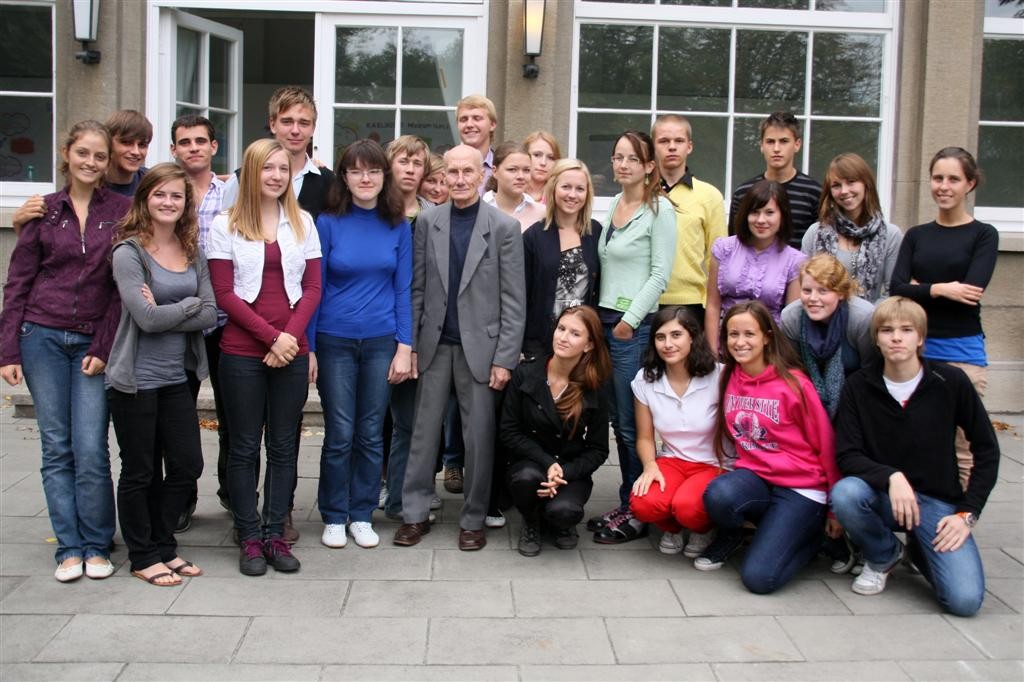
Mr Netto and participants of the EUSTORY Seminar (photo: Tina Gotthardt)
Reflections on War
Thus, our group of young Europeans had the unique opportunity to realize how quickly a war can freeze and interrupt human’s existence. The life of Lev, an ordinary teenager with a welcoming family, study expectations and faith in his country, changed deeply. A boy of almost our age had to face violence, hunger and death from one day to another. We were impressed by the clearness of mind he showed in telling us about killing another human being: “If you did not kill them, you would die yourself. There is nothing personal about this act.” This is something you don’t read in books, but is still a very crucial aspect of historical events.
More Insights
That kind of sentences that we heard, show the rawness of the war, exemplify how ideas can change minds and how human life loses value, but at the same time they serve as a reminder for today. They teach us that we should strive to live in peace and refuse to repeat the same mistakes, in order to avoid finding ourselves in the situation of being forced to kill another human being again. It is a reminder to set the basis of the present and the future on coexistent and pacifist values. This was perfectly expressed by our interviewee himself. In the last statement he gave us he said: “To achieve peace, we need equality, but that did not work in Russia, as for centuries there have been class systems, still existing today. I experienced lies of the legal system, and so lost faith in the Communist Party”.
We can clearly sum up that the meeting with a time witness; the respected Mr Lev Alexandrovic Netto was an extraordinary and unique experience, which changed something in each of us and made us think about the other, personal side of history.

